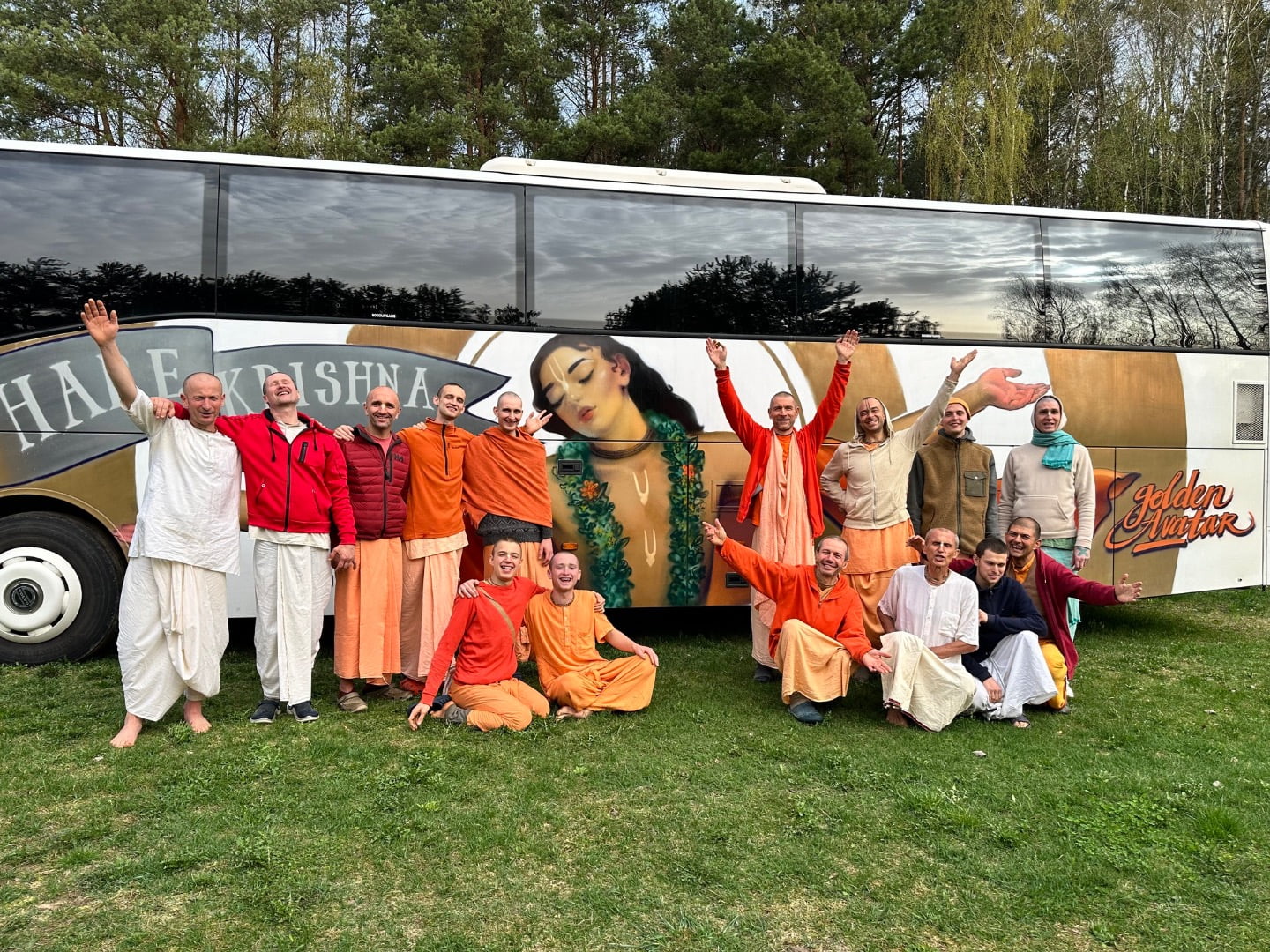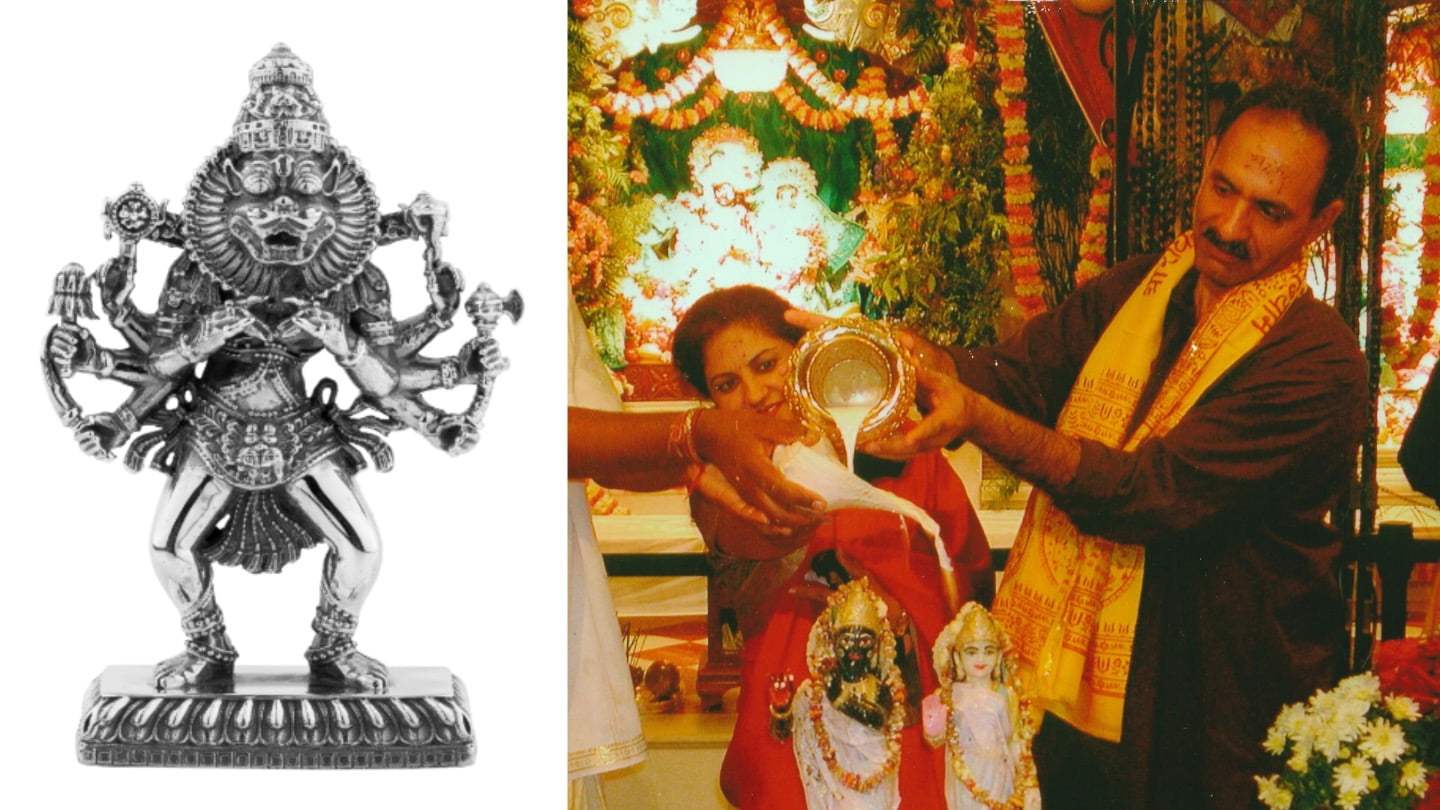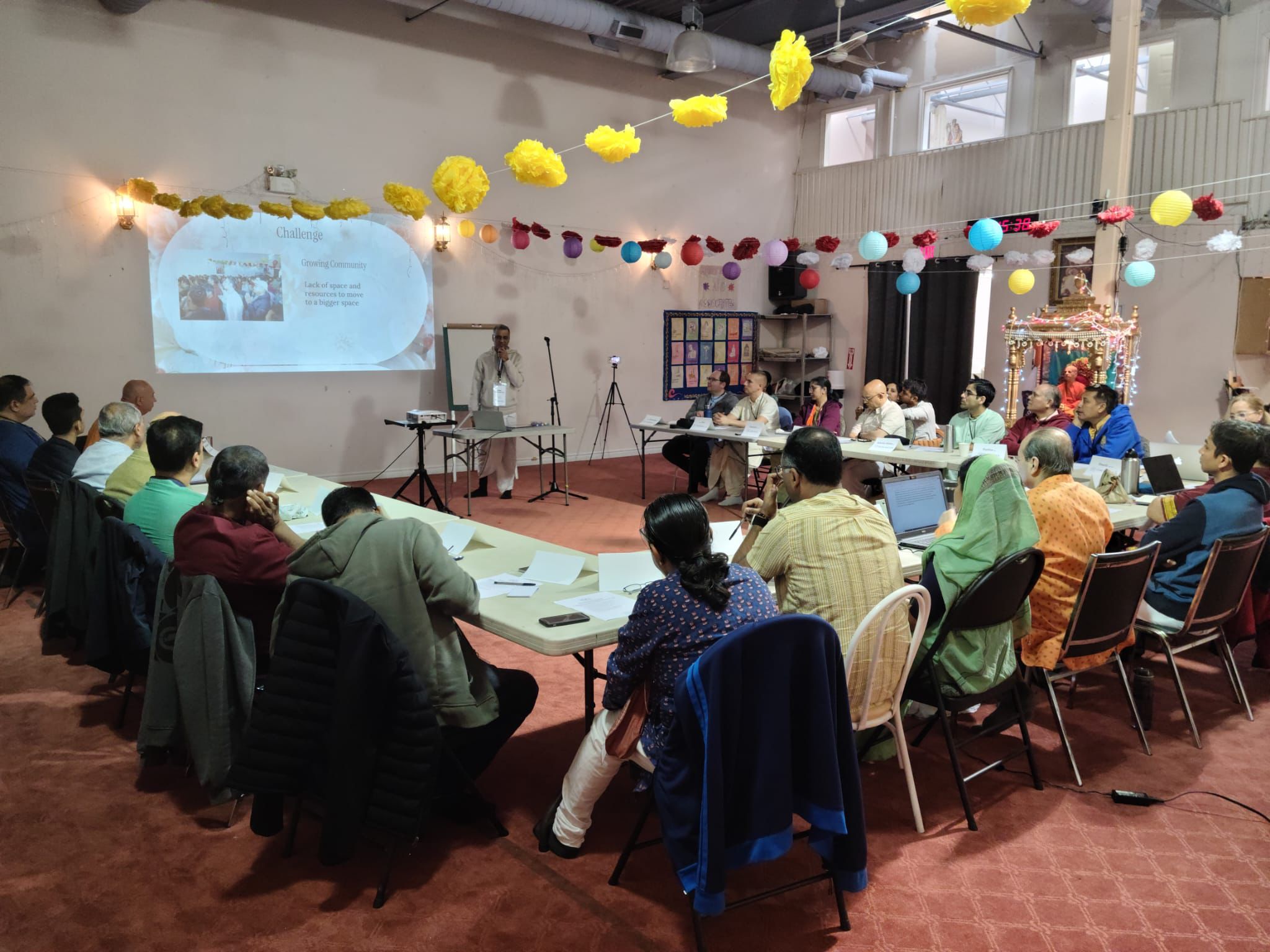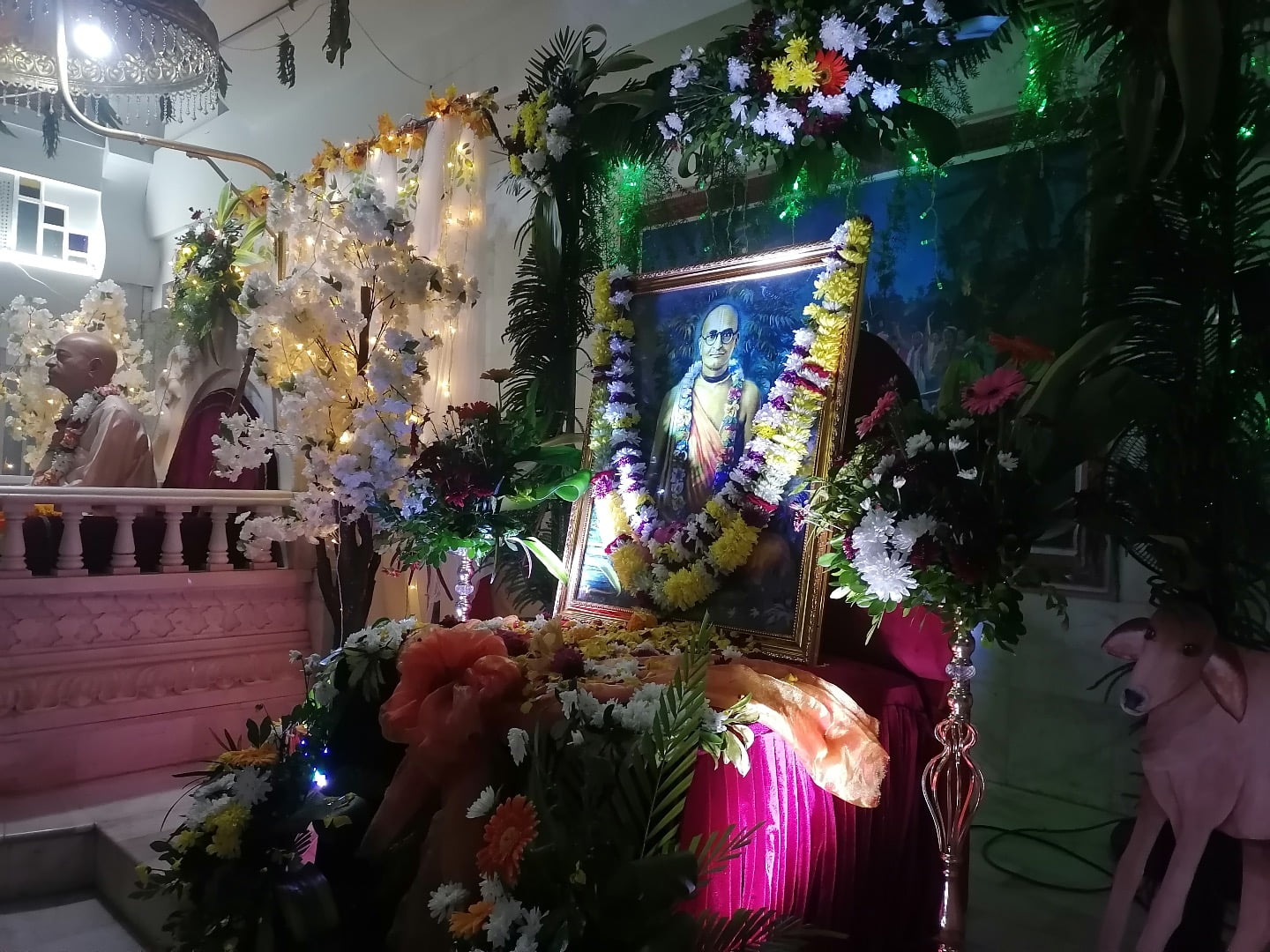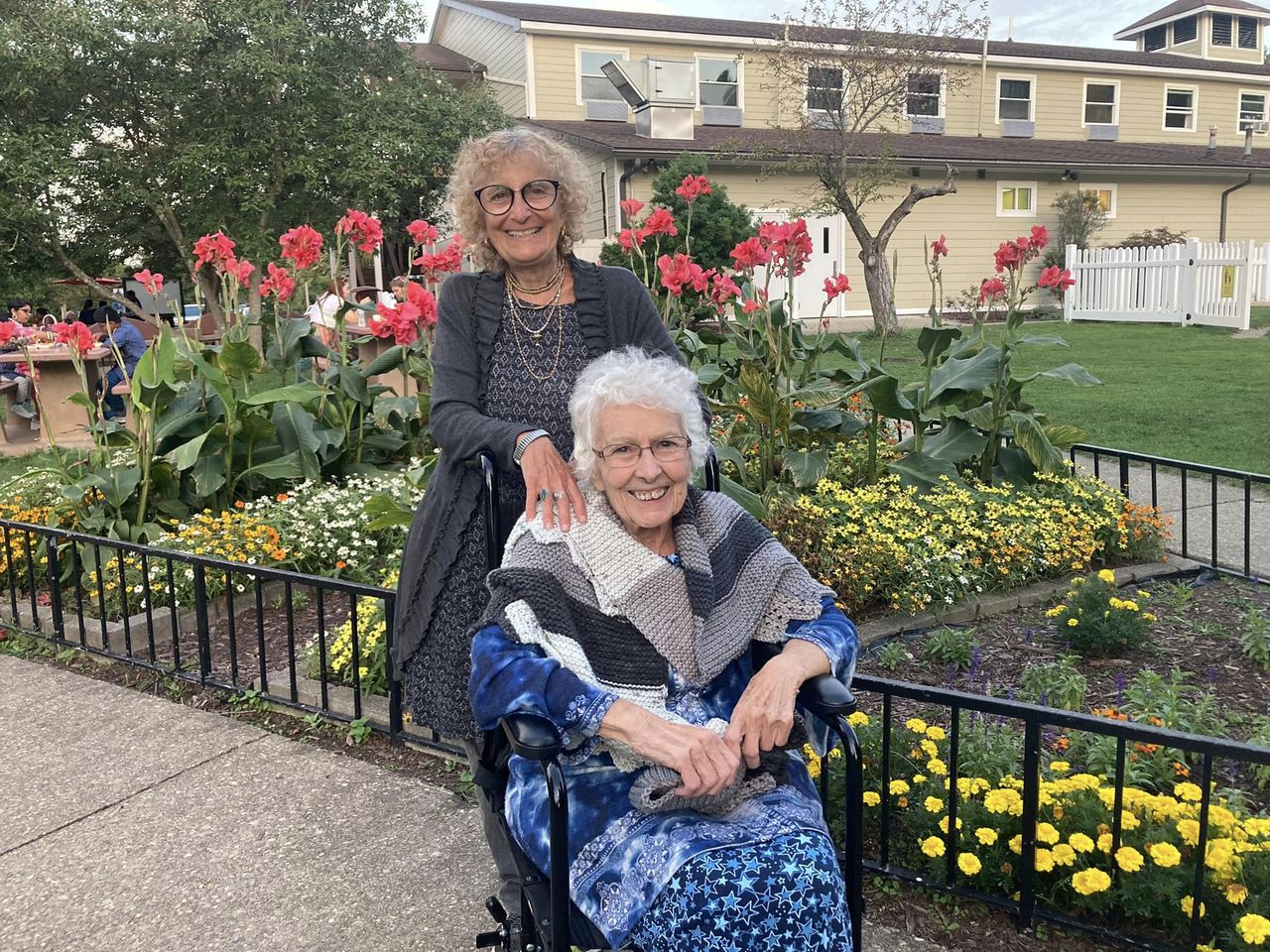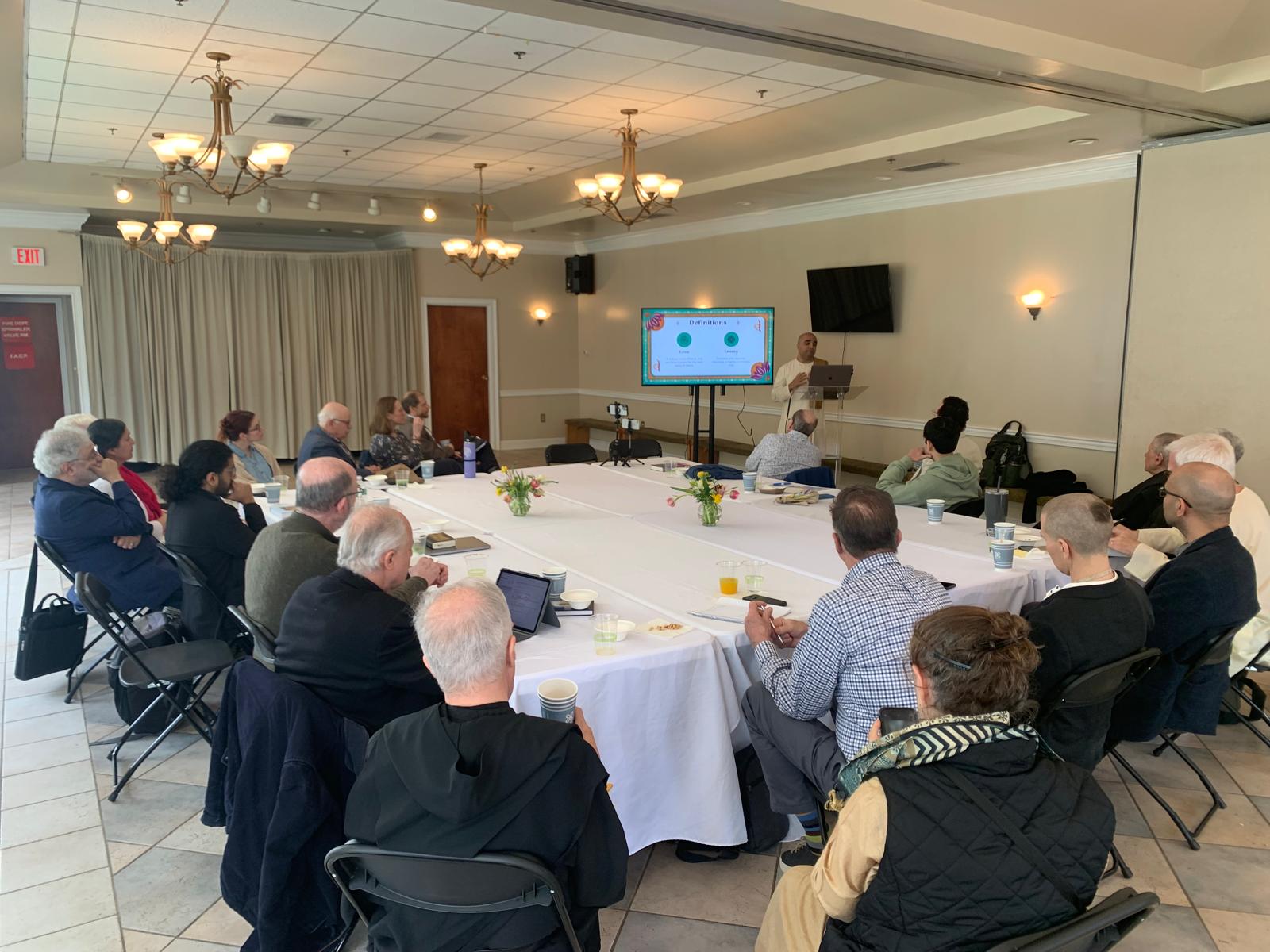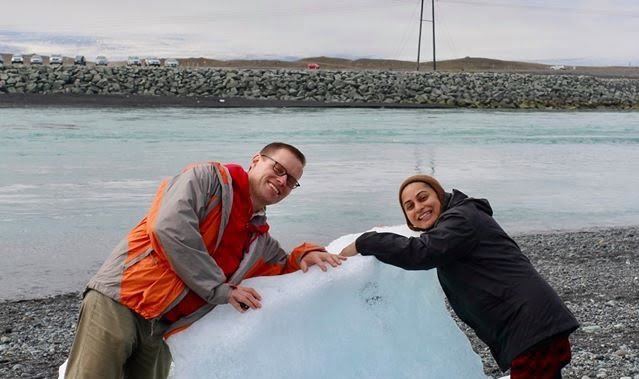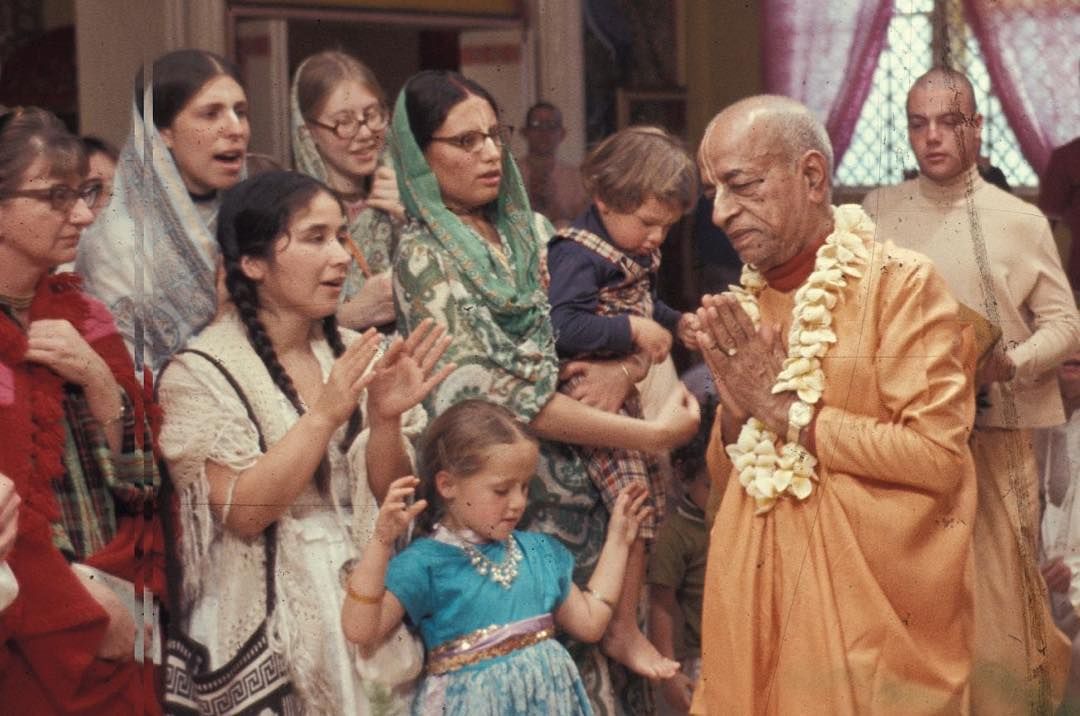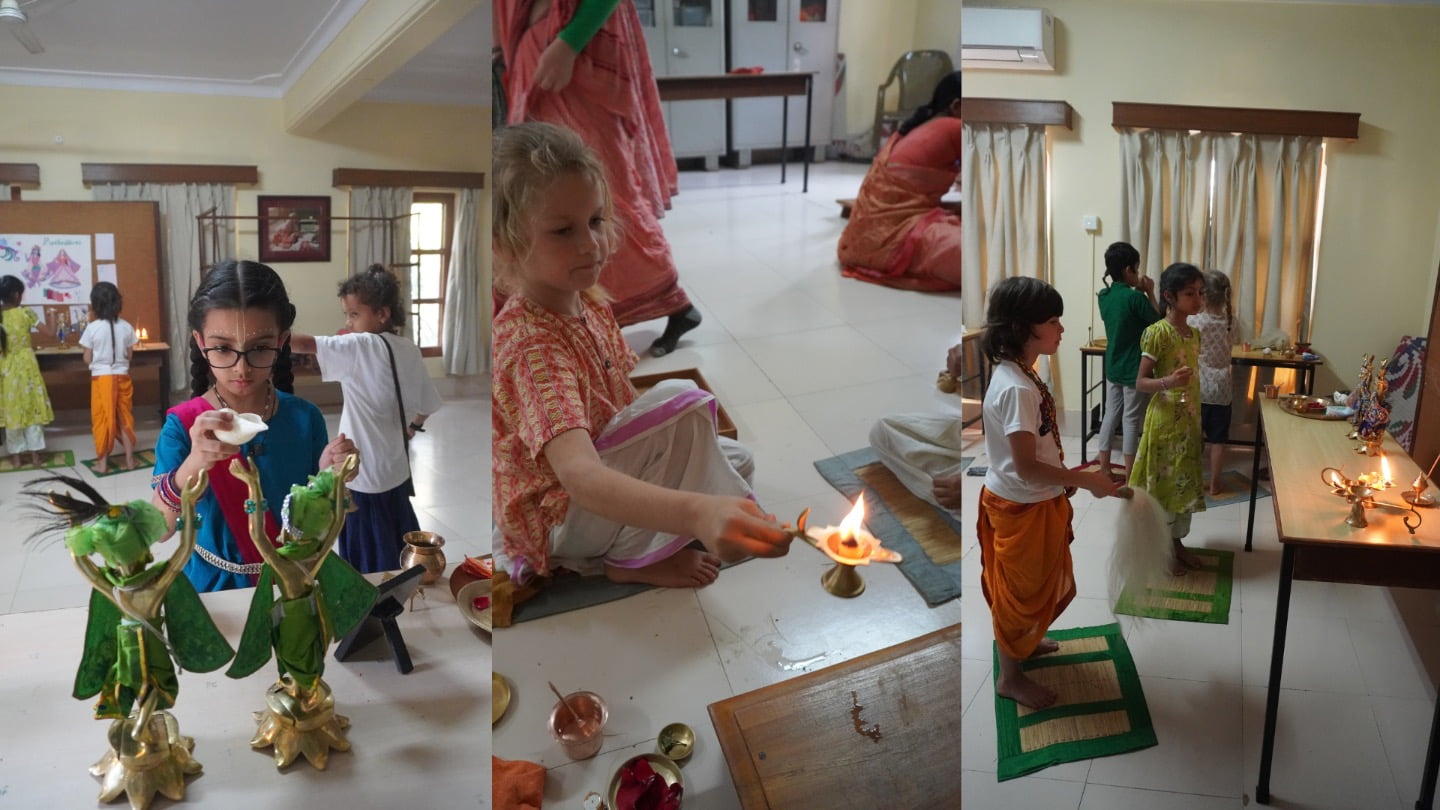New Gurukuli Memoir of Abuse a Powerful Reminder for Further Vigilance
By Madhava Smullen | Nov 16, 2010
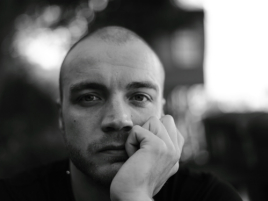
A new book self-published this March by former gurukula student Daniel Lutz, entitled “My Karma, My Fault,” tells a sobering tale of neglect and abuse suffered in ISKCON boarding schools from 1983 to 1994. And despite the sixteen years that have passed since his experiences—and ISKCON’s pro-activity during those years in developing strong child protection systems—they still serve as a powerful reminder of the need for continued vigilance across our international society to protect our most innocent members—our children.
Born in Germany in 1979 just as his parents were developing an interest in ISKCON, Daniel spent much of his early childhood moving around Europe constantly, living in a new temple almost every three and a half months.
In 1984, Daniel—then known as Devavrata Dasa—moved to Sweden, where he and his family settled into the Hare Krishna community in Almviks Gard. There, at the age of five years old, he was enrolled in his first gurukula.
Traditionally, gurukula is a revered spiritual educational system. Yet without realizing it, Daniel’s parents had placed him in the care of an abusive teacher, and the boy was sexually and physically assaulted regularly over the next three years.
In 1989, he and his family moved to Finland. There, Daniel tried to attend public school, but without success. He was unable to relate to the other students, and the poor education he had received set him far behind his classmates.
“It was difficult for me to sit still and to concentrate, after what I’d been through,” says Daniel, now 31. “ I had continuous nightmares about all the things that had happened to me.”
In 1990, Daniel traveled to India for the first time, where he was enrolled in the Gurukula boarding school in Mayapur, India. There, he was again subjected to sexual and physical abuse, this time at the hands of older students.
In 1994, at the age of fourteen, Daniel moved back home. Again, he tried going to public school, but couldn’t relate to his classmates or understand the topics the teachers spoke of. He stopped school; stopped doing much of anything at all. He just “needed time to be.”
Finally, at eighteen, he decided he had to try to get his life in order. He began sending out resumes, and applying for every job he could find. Some of them worked out for a while, but it wasn’t easy.
“I had no proper education, no profession, no tools to enter the ‘normal’ world,” he says. “It’s extremely difficult to have an afterlife when you’ve been seriously traumatized. It’s very difficult to find your place in a world you perceive as having betrayed you since early childhood. It takes a long time, a lot of work, to begin to re-inhabit your body, mind and senses, or to form any new relationships.”
Slowly, however, Daniel found a kind of normalcy, a structure he felt he could live his life by. He got his foot in the door, and today, he works at a major truck manufacturing company and also has his own photography website. “My life did turn out well, in the end,” he says.
By 2008, Daniel was ready to look back. He decided to write his memoir, My Karma, My Fault, in which he would describe his traumatic past unflinchingly, even naming those who had wronged him. He wanted to see if he could confront his past; to see if he could write down the horrible things that had happened to him and face them.
“There were many other reasons for writing the book, which arose as I worked,” he says. “For instance, I soon realized that I liked writing, and that I was good at it. So I thought, let’s write this in such a way that other people would like to read it.
“Later, after a few people had test-read what I’d written so far, and had told me, ‘You must finish this book!’ I had all the more reason to write—now I knew that people wanted to read it.”
Daniel was given yet another reason to complete his book when somebody said to him, “If you release this book, you will be doing not only yourself, but also ISKCON a great favor.”
At first, it was hard for Daniel to see how he was going to do himself a favor by writing My Karma My Fault, however.
“I felt as if I was digging myself into a very deep grave, with all those incidents piled on top of me,” he says. “Still, I kept on, until I had written the very last page, and decided, ‘Okay, it’s ready.’ Then I flipped back to the beginning and read the book all the way through. And that’s when it hit me—as I read about them, I found that the incidents in my past didn’t affect me anymore.”
In March 2010, Daniel sent his book to the printer’s. And a few days later, he took his first trip to India—and to Mayapur—since he had left in 1994.
“I walked right into the old gurukula, where I had gone through so much suffering and abuse,” he says. “Although most of the old compound had been abandoned, I still recognized it. And it felt really good to face myself once more in that place. I don’t think I would ever have been able to do that if I hadn’t written this book.”
On May 26, 2010, Daniel sent a copy of My Karma My Fault to Her Majesty Queen Silvia of Sweden, who is actively involved in child protection. Her secretary sent him this reply: “Her Majesty the Queen wants to thank you for sending a copy of your book, My Karma My Fault, to her. It took a lot of courage to write this book, and the Queen looks forward to reading it and to partake of your story. The Queen sends her well wishes.”
True to her word, Queen Silvia did indeed read the book, and went on to endorse it in the Swedish media. The ensuing interest resulted in several newspaper interviews, and Daniel was able to tell his story; to be listened to, and to be understood.
Remembering one of the prominent reasons why he had written the book, Daniel also sent it to many GBC members and other ISKCON leaders in Mayapur, Sweden, and around the world. He knew that much of the greater ISKCON world had never been aware of the full picture of the abuse that had gone on in its earliest years.
The response from GBC members who read My Karma My Fault was encouraging. “They have been very helpful, and very kind to me with their words,” Daniel says. “Some of them were in shock after they read the book, because they had not been aware of the extent of the abuse that had happened. After all, this is the first book ever from an ISKCON kid, giving a firsthand description. And so they thanked me profusely for helping them to finally understand, from an abused child’s viewpoint, exactly what happened.”
One GBC member, Bhanu Swami, wrote to Daniel: “I read it in one sitting. I think that all parents, teachers and leaders in ISKCON should read the book. It is unfortunate that the past cannot be erased, especially the individual experience. At least we can take preventive measures, by giving devotees an idea of how not to raise and educate children. I will recommend this book to any parent who thinks of putting their kids in gurukulas also—not to scare them away, but to make sure that they take precautions.”
Anuttama Dasa, another GBC member and advocate for the protection of children within ISKCON, commented: “This book is a reminder to all members of ISKCON that we live in a world that requires vigilance in protecting vulnerable members of society, especially our children and families. And although ISKCON has been very proactive in dealing with the abuse that occurred in and around our communities in the 1970s, ‘80s, and early ‘90s, Daniel’s book is a reminder that even one child suffering abuse should not be tolerated. Our families, leaders, and child protection offices around the world have to be constantly on guard to make sure we’re doing everything within our power to maintain a safe environment for our kids.”
Daniel agrees. “It would my greatest achievement if I could open people’s eyes to this subject matter more,” he says. “We shouldn’t think, ‘This will never happen here,’ or ‘That kind of thing doesn’t happen anymore.’ We should always be aware.”
He also hopes that his book will reach out to many of the young adults with whom he attended gurukula. “I hope that it helps them open up as well, and share what they’ve been through,” he says. “Because it all has to come out, it has to be spoken about, it has to be acknowledged. And that will help erase the dark history that ISKCON has, so that it can move on.”
Daniel is careful to clarify his goals. “It’s not my intention to blackpaint or badmouth the Hare Krishna movement,” he explains. “That has never been my agenda and never will be. I simply want to make people aware of what has happened.”
He hopes that ISKCON will now develop an even more sophisticated screening process for teachers and educators, and that all gurukulas will provide an education equivalent to that of the public schooling system. “Things worked out well for me in the end, but it’s been a struggle,” he says. “If one day they decide they don’t want to be a Hare Krishna, kids should be educated to have full options to go to college and get a job—they shouldn’t have to start with nothing, like I did.”
Today, Daniel doesn’t believe in God, and has no connection with ISKCON, although he respects those who decide to practice Krishna consciousness. “It just doesn’t attract me,” he says. “It’s not appealing to continue with something that’s given me mostly pain and suffering.”
Despite all he’s been through, Daniel comes across as a very clear-thinking and balanced person. In his reasonable way, he acknowledges that there were good times as well as bad in his childhood. “How many children, or even adults, nowadays get to see as much of the world as I did? To live in India? To see so much culture and exotic sights? I mean, I got to ride around the Mayapur grounds on an elephant, holding a deity in my lap. How many kids get to do that?”
These small joyous memories are hidden in the sour recollections of harshness, abuse and violence, however. “I have a seven-year-old son now, and most of the normal child things he does, I’ve never experienced,” he says. “I never got the chance to be a child the way children should be allowed to be.”
And despite all the healing work he’s done, Daniel will continue to take the dark memories with him. “There’s probably not a single day where I don’t think about my past,” he says. “You can’t erase memories, and there are so many things that trigger them. It could be a certain time of the day, an activity, a certain smell. Some nights I can’t sleep, because of the nightmares. I have done much healing, but there is much more to be done—it will be a continuous healing process throughout my entire life.”
Reflecting back on Daniel’s story, GBC member Anuttama Dasa concludes: “For Daniel, and for all of our children, we ask that all ISKCON leaders and members pledge to remain vigilant, to always keep improving our schools and child protection systems around the world, and to build for Srila Prabhupada’s society a reputation as a safe and nurturing home for those placed within our care.”
My Karma My Fault is available from Bhaktivedanta Library Services here: http://blservices.com/my-karma-my-fault
The book is also available from Amazon.com here: http://www.amazon.com/My-Karma-Fault-Daniel-Lutz/dp/9163362872/ref=sr_1_1?ie=UTF8&s=books&qid=1289499984&sr=8-1





